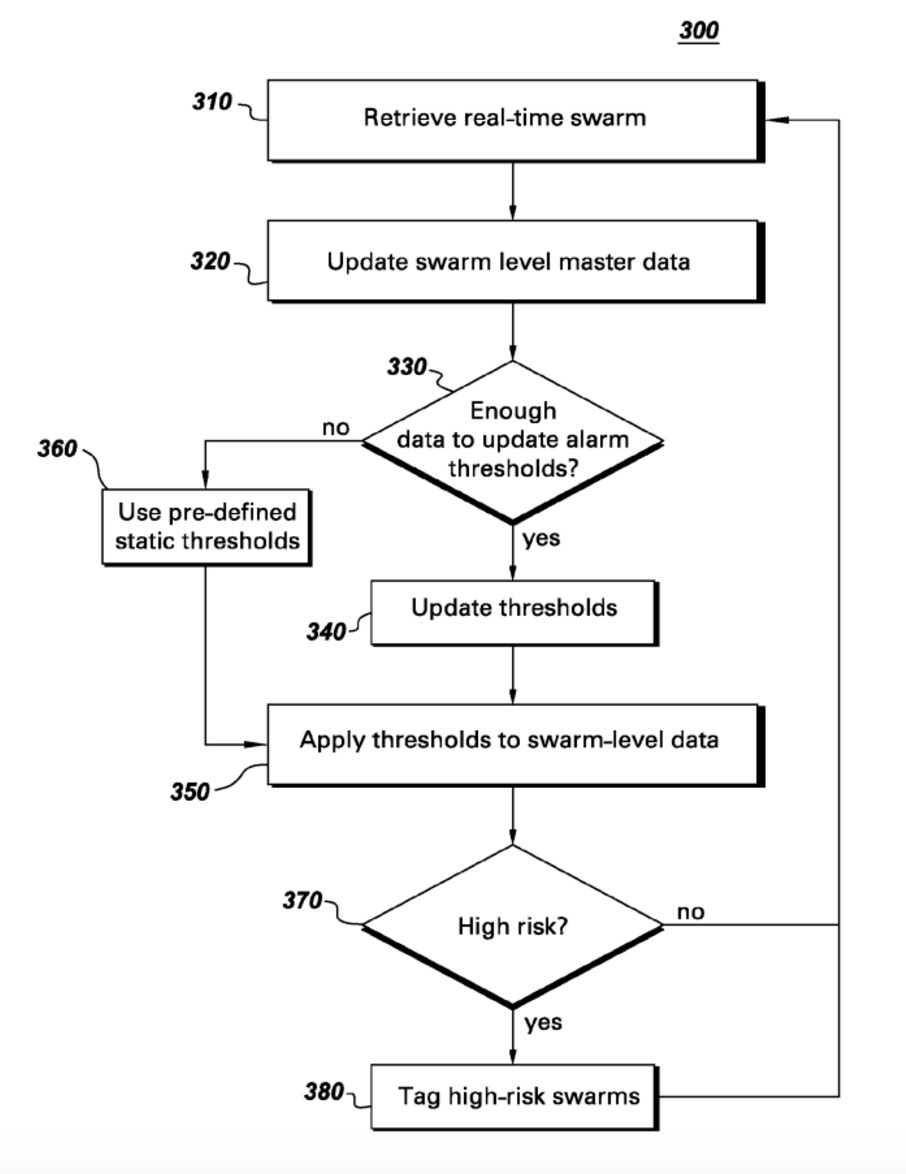Pirate swarms at risk from new patent

NBC has patented new technology which targets large-scale swarms of torrent users in the hunt for copyright infringers.
The patent, "Early Detection of High Volume Peer-To-Peer swarms," has been issued by USPTO to Comcast's NBC Universal. The system leverages technology to detect swarms which are sharing files at high volumes in order to not only track down pirates and uploaders of copyrighted material, but to gather information for anti-piracy and business purposes.
As reported by TorrentFreak, NBC Universal could license the technology to prevent the spread of large-scale pirating before swarms become too big to control.
It is worth noting that peer-to-peer networking and BitTorrent technology were not developed with copyright infringement in mind. Rather, the technology was created as an easy way to share large files without relying on single servers.
As files are broken up, downloaded and uploaded in parts with each connected "leech" user grabbing complete data from "seeders" who act as the host for full files, torrenting has also become a popular method to quickly grab pirated material including music, games, films, and television shows.
The patent's description (.PDF) notes that this technology "has many advantages" but "it also has led to abuses," such as the loss of revenue by content owners "estimated in billions of dollars annually."
It is not only content creators who are not fans of the technology, which is used by millions of people worldwide to share pirated material. Internet Service Providers (ISPs) are also creaking under the strain of increased broadband demand, already caused by the increase in legitimate content streaming services such as Netflix and Amazon Prime Video.
The patent would allow license holders to monitor file-sharing and once the number of connected users rises above a particular threshold, the system could alert ISPs and content providers to send takedown messages.
However, the patent could also be used in more controversial ways -- such as limiting or blocking P2P traffic to save ISPs money.

"Alternatively, the network provider may proceed to diminish or cap network resources once some limit of data activity is met," the patent reads. "In certain aspects the processing for the high risk swarms also indicate the high volume swarms and allows for traffic shaping for the ISPs."
Such a move would not prove popular with many consumers, especially as ISPs have traditionally been reluctant to meddle with user activity online -- but as data-hungry users demand more bandwidth, this attitude may yet change.
We will also have to see how, if at all, Comcast applies this patent. The patent was filed eight years ago, and considering the current state of torrenting and P2P, it may be too late for this technology to make any significant difference for ISPs or copyright holders.